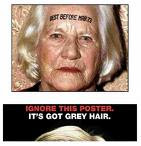 Philosophia Reformata began in 1936 in The Netherlands by scholars interested in Christian Scholarship and particularly related to the outstanding achievement of Herman Dooyeweerd (1894-1977) whose magnum opus, De Wijsbegeerte der Wetsidee (A Philosophy of the Law-Idea) in 3 volumes had been published in Dutch (1935-1936). This work was later translated, edited, and elaborated further by Dooyeweerd and others, appearing in English as, A New Critique of Theoretical Thought (1953-1958).
Philosophia Reformata began in 1936 in The Netherlands by scholars interested in Christian Scholarship and particularly related to the outstanding achievement of Herman Dooyeweerd (1894-1977) whose magnum opus, De Wijsbegeerte der Wetsidee (A Philosophy of the Law-Idea) in 3 volumes had been published in Dutch (1935-1936). This work was later translated, edited, and elaborated further by Dooyeweerd and others, appearing in English as, A New Critique of Theoretical Thought (1953-1958).I have just finished writing a journal article for Philosophia Reformata entitled, Out of the Abundance of the Heart: Implications for Christian Psychotherapy. In the article I have first outlined Dooyeweerd's views relating to the supratemporal heart or soul. The second part of the article deals with the implications of Dooyeweerd's Ideas for psychotherapy. One major implication I would like to emphasise is Dooyeweerd's belief that the realisation of an appreciation for God's sovereign reign over all of life required daily conversion of the heart, the supratemporal core of our being.





